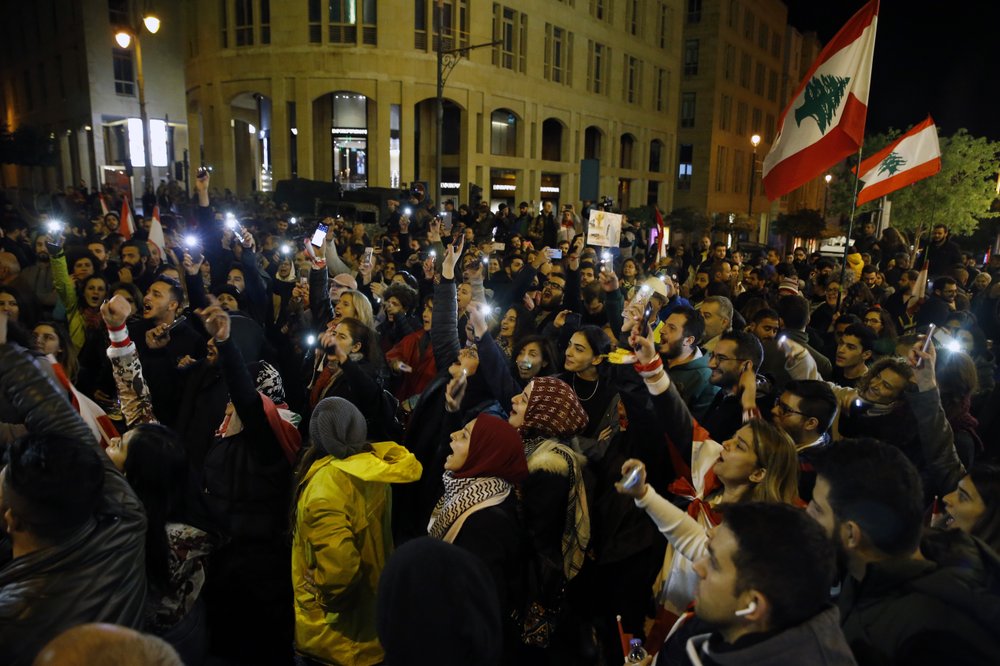
BEIRUT (AP) — A possible candidate for prime minister of Lebanon said Sunday he is withdrawing from consideration for the post, prolonging the country’s political crisis.
Samir Khatib said the country’s top Sunni religious authority told him the community supports the re-appointment of former Prime Minister Saad Hariri, who resigned Oct. 29 under fire from anti-government protesters.
Under Lebanon’s sectarian-based political system, the prime minister comes from the Sunni Muslim community, while the president is chosen from the Maronite Christian community. The parliament speaker is chosen from the ranks of Shia Muslims.
Khatib’s announcement came hours before he was expected to be named as the official candidate following consultations between President Michel Aoun and major parliamentary blocs. In light of Khatib’s decision, Aoun decided to postpone the consultations for a week.
Hariri resigned amid nationwide protests in which demonstrators accused the political elite of corruption and mismanagement. A stalemate ensued over who should head the new government amid a deepening economic crisis, shortage of liquidity and hard currency.
At the time, Hariri said he reached a dead end with his political rivals over forming an emergency government to deal with the country’s crumbling economy.
He said he backed Khatib for the post, but protesters rejected him, saying the prominent businessman and contractor was too close to the ruling elite.
On Sunday, Khatib announced his decision after meeting with Hariri and Lebanon’s Grand Mufti, Sheikh Abdul Latif Derian.
Khatib said he has been “subjected to an unfair campaign by some biased people” since his name was floated as a candidate two weeks ago.
Protesters gathered outside parliament after the announcement for scheduled rallies to protest the way the government is being formed and the delays in choosing a candidate amid the downward spiral of the economy. They were quick to denounce Hariri’s possible return as a contender for the job.
“We want an independent head of government,” said Layal Siblani, one of hundreds of protesters gathered outside parliament. “Hariri is no exception. He is one of the pillars of this authority, he and his family. … They should not portray him as our savior because he has good international contacts.”
Siblani also protested the role of the religious authority in naming or supporting a candidate. “The head of the government is for all people. We should all know that and that there is no room for religious authorities to interfere.”
Security forces prevented the protesters from marching to Hariri’s office, tightening roadblocks and scuffling with some who tried to push their way out of a cordon. Heavy rains didn’t stop dozens of protesters from reaching the outside of Hariri’s office chanting: “You will not come back, Hariri,” and “Revolution.”
Lebanon’s national unity government was headed by Hariri, backed by the West, but was dominated by the Iranian-backed Hezbollah group and its allies, including the party of President Michel Aoun.
Reporting by Omar Akour
Image: Protesters chant slogans as they light up their mobile phones, during ongoing protests against the Lebanese political class, on a road leading to the parliament building in Beirut, Lebanon, on Sunday, Dec. 8, 2019 (AP Photo/Bilal Hussein)



